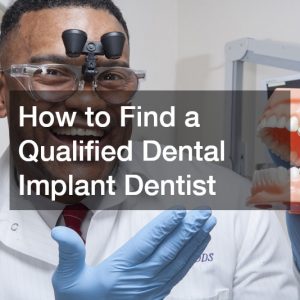For many people struggling with missing or severely damaged teeth, full mouth dental implants can be life-changing. They restore not only the ability to eat and speak comfortably but also the confidence that comes with a healthy, natural-looking smile.
However, the term “full mouth dental implants” can sometimes cause confusion. Some imagine that every missing tooth is replaced with its own individual implant.
While this can happen in rare cases, modern techniques allow for strategic placement of fewer implants to support a complete set of teeth. This approach is more efficient, more cost-effective, and just as secure.
When it comes to full mouth restoration, there are generally two primary options: removable snap-in dentures and fixed hybrid teeth. Each has unique benefits, considerations, and ideal candidates. Let’s take a closer look at both.
Understanding Full Mouth Dental Implants
Dental implants are titanium posts surgically placed into the jawbone to act as artificial tooth roots. Over time, the bone fuses to the implant in a process called osseointegration, creating a stable foundation for replacement teeth.
In full mouth cases, instead of placing an implant for every missing tooth, a smaller number of implants is strategically positioned in each arch (upper and lower jaw) to support an entire set of teeth. This minimizes surgery while still providing strong, functional results.
Option 1: Snap-In Dentures (Removable Overdentures)
Snap-in dentures are a popular choice for patients who want more stability than traditional dentures without the higher investment of a fixed option.
How They Work
- Implant Placement: Typically, at least four implants are placed in the upper jaw and four in the lower jaw.
- Attachment System: Once healed, small connector pieces (often gold or titanium) extend through the gums. Inside the denture, there are corresponding snap-like attachments with rubber or nylon inserts.
- Retention: When the denture is pressed into place, it “snaps” onto the implants, locking securely for daily wear.
Advantages
- Greater Stability: The snapping mechanism prevents slipping or shifting during eating, speaking, or laughing.
- Improved Comfort: Less irritation of the gums compared to traditional dentures.
- Customizable Retention: The tightness of the snaps can be adjusted over time. For example, patients may start with lighter retention to make removal easier, then switch to stronger snaps as they adapt.
- Easier Cleaning: Since they are removable, snap-in dentures can be taken out for thorough cleaning.
Considerations
- Daily Removal Required: They must be taken out at night to allow the gums to rest and to clean the denture thoroughly.
- Maintenance: The rubber or nylon inserts in the snaps will wear out over time and need replacement.
- Slight Bulk: Although more streamlined than traditional dentures, they can still feel bulkier than natural teeth.
Snap-in dentures are an excellent upgrade for those currently using conventional dentures and looking for better stability without committing to a fully fixed solution.
Option 2: Fixed Hybrid Teeth (Permanent, Screw-Retained Bridge)
Fixed hybrid dental implants provide the closest experience to having natural teeth again. They are securely attached to implants and can only be removed by a dental professional.
How They Work
- Immediate Placement: In many cases, implants and a temporary fixed bridge can be placed on the same day the natural teeth are removed.
- Healing Period: Although the temporary bridge looks and functions like natural teeth, the implants need about 3–4 months to fully integrate with the bone.
- Final Prosthesis: Once healed, a custom set of porcelain or zirconia teeth is crafted, often with pink ceramic to replicate natural gum tissue. This final bridge is then secured to the implants with screws.
Advantages
- Permanence: The bridge remains in place at all times—no need to remove it for cleaning or sleeping.
- Natural Appearance: High-quality materials like zirconia and porcelain mimic the look of natural teeth and gums.
- Functionality: Strong enough to chew most foods once the implants are fully healed.
- Confidence Boost: No worries about dentures slipping or clicking during conversation.
Considerations
- Healing Limitations: During the first few months, patients must follow a softer diet to avoid putting too much pressure on the healing implants.
- Professional Maintenance: Cleaning requires regular checkups and occasional professional removal for deep cleaning.
- Higher Investment: Fixed hybrids typically cost more than removable options.
Fixed hybrids are ideal for people who want a permanent, maintenance-friendly solution and don’t want the inconvenience of removing their teeth at night.
Choosing the Right Option for You
Deciding between snap-in dentures and fixed hybrid teeth depends on several factors:
Lifestyle Preferences
- If you’re comfortable removing your teeth at night and want easy cleaning, snap-in dentures may be appealing.
- If you prefer a “set-it-and-forget-it” solution that feels more like natural teeth, fixed hybrids may be better.
Budget
- Snap-in dentures generally cost less up front.
- Fixed hybrids require a larger initial investment but often provide greater long-term satisfaction.
Bone Health
- Adequate jawbone density is essential for both options, but fixed hybrids may require more precise bone support.
- In cases of bone loss, bone grafting might be necessary.
Oral Health Goals
- Some patients want a quick improvement in function and appearance.
- Others prioritize long-term stability and minimal daily maintenance.
The Importance of Planning
Regardless of the option you choose, successful outcomes rely heavily on careful planning and individualized treatment. This process should include:
- Comprehensive Evaluation: A thorough review of your dental and medical history to ensure you’re a good candidate for implants.
- 3D Imaging: Cone-beam CT scans allow for precise mapping of bone structure and nerve locations.
- Customized Placement: Each implant should be strategically positioned for optimal support, comfort, and aesthetics.
- Collaboration: Coordination with other healthcare providers if you have medical conditions that could affect healing.
A well-planned approach not only improves the final look but also reduces the risk of complications.
Overcoming Common Concerns
Many people hesitate to consider full mouth dental implants due to past memories of loose dentures in a glass of water or fear of a complicated surgery. Modern implant technology addresses these worries with secure attachments, natural aesthetics, and faster recovery times.
If you’re concerned about removing your natural teeth, remember that preserving healthy teeth is always the priority. Full mouth implants are generally recommended when teeth are too damaged or decayed to restore effectively. In some cases, keeping remaining healthy teeth and building around them is the best option.
Long-Term Care and Maintenance
Whether you choose snap-in dentures or fixed hybrid teeth, ongoing care is crucial:
- Oral Hygiene: Daily cleaning is essential to prevent gum inflammation and implant failure.
- Routine Checkups: Regular dental visits allow for early detection of issues and professional maintenance of your prosthesis.
- Part Replacement: Snap-in dentures may require occasional replacement of attachment components. Fixed bridges may need screw adjustments or deep cleaning.
- Lifestyle Choices: Avoid habits like chewing ice, opening packages with your teeth, or smoking, as these can damage both implants and prosthetic teeth.
Final Thoughts
Full mouth dental implants have transformed the way people restore their smiles after significant tooth loss. With the choice between removable snap-in dentures and permanent fixed hybrid teeth, patients can select a solution that best fits their lifestyle, budget, and long-term goals.
By working with a skilled dental team that prioritizes careful planning, you can enjoy a functional, natural-looking smile that lasts for years. Whether you’re upgrading from traditional dentures or seeking a permanent replacement for failing teeth, today’s implant solutions can restore more than just your teeth—they can restore your confidence and quality of life.





